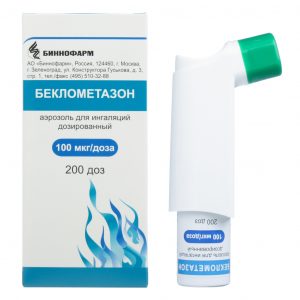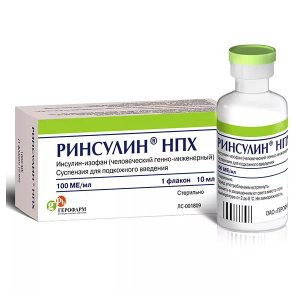Description
Pharmacological action of
Oxytocin has a stimulating effect on the smooth muscles of the uterus, increases contractile activity and tone of the myometrium. Synthetic oxytocin has all the biological properties inherent in the natural hormone secreted by the posterior pituitary gland.
With iv administration, most of the drug enters the liver, where it is rapidly inactivated. T Is 3-5 minutes. A small amount of oxytocin is excreted by the kidneys unchanged.
Indications
induction of labor, stimulation of labor during primary and secondary weakness, and also – with caution – in the first and second periods of labor, prevention and treatment of placental bleeding and atonic uterine bleeding (with caesarean section, the drug is injected into the uterus muscle) insufficient involution uterus in the postpartum period – to control subinvolution and bleeding, incomplete or septic abortion uterine bleeding (after establishing a histological diagnosis).
Contraindications
– contraindications for vaginal delivery (e.g., presentation or prolapse of the umbilical cord, full or partial presentation of the placenta, narrow pelvis (mismatch in the size of the fetal head and pelvis of the woman in labor), lateral or oblique position of the fetus, preventing spontaneous, spontaneous situations requiring surgical intervention caused by the state of the woman in childbirth or the fetus, the state of fetal distress long before the terminal stages of pregnancy, prolonged use with inertia of the uterus, severe gestosis (high blood pressure, impaired renal function), uterine hypertonicity (not occurring during labor), sepsis, diseases heart, arterial hypertension, impaired renal function, facial presentation of the fetus, excessive stretching of the uterus, compression of the fetus).
– hypersensitivity to oxytocin.
Special instructions
Before proceeding with the use of oxytocin, the intended benefits of therapy should be compared with the possibility, albeit small, of developing hypertension and uterine tetany.
Until the insertion of the fetal head into the pelvic entrance, oxytocin cannot be used to stimulate labor.
Each patient receiving iv oxytocin should be in a hospital under the constant supervision of experienced professionals who have experience using the drug and recognizing complications. If necessary, immediate medical assistance should be provided. In order to avoid complications during the use of the drug, uterine contractions, cardiac activity of the woman in labor and the fetus, and blood pressure of the woman in labor should be constantly monitored. With signs of uterine hyperactivity, oxytocin should be discontinued immediately, as a result of which the uterine contractions caused by the drug usually subside soon.
When used adequately, oxytocin causes uterine contractions similar to spontaneous labor. Excessive stimulation of the uterus with improper use of the drug is dangerous both for the mother and the fetus. Even with adequate use of the drug and appropriate monitoring, hypertensive contractions of the uterus occur with increased sensitivity of the uterus to oxytocin.
The risk of developing afibrinogenemia and increased blood loss should be considered.
Cases of death of a woman in labor as a result of hypersensitivity reactions, subarachnoid hemorrhage, rupture of the uterus and fetal death for various reasons associated with parenteral administration of the drug to induce labor and stimulate labor in the first and second stages of labor are known.
As a result of the antidiuretic effect of oxytocin, the development of hyperhydration is possible, especially with the use of continuous infusion of oxytocin and the use of fluid inside.
The drug can be diluted in solutions of sodium lactate, sodium chlorate and glucose. The finished solution should be used in the first 8 hours after its preparation. Compatibility studies were conducted with 500 ml infusions.
The effect of the drug on the ability to drive a car and mechanisms, work on which is associated with an increased risk of injury
Oxytocin does not affect the ability to drive a vehicle and mechanisms that work is associated with an increased risk of injury.
Composition
Oxytocin 5 IU
Other ingredients: acetic acid, chlorobutanol, ethyl alcohol.
1 ml of injection solution contains 5 IU of synthetic oxytocin.
Dosage and administration
Usually, the drug is administered in oil. If the therapeutic effect is not achieved or a faster action is required, then resort to iv slow administration of Oxytocin. The drug, both IM and IV, is administered in a dose of 1-3 IU. With a caesarean section, oxytocin is injected into the uterus muscle at a dose of 5 IU. According to gynecological indications, the drug is prescribed sc or IM in a dose of 5-10 IU. For iv drip, 1 ml of oxytocin is diluted in 500 ml of 5% glucose solution and administered at an initial rate of 5-8 drops per minute, gradually increasing the infusion rate by 5 drops every 5-10 minutes, but not more than 40 drops per a minute.
Drug interaction
Severe arterial hypertension is possible with oxytocin 3-4 hours after the use of vasoconstrictors together with caudal anesthesia.
During anesthesia with cyclopropane and halothane, the cardiovascular effect of oxytocin may change with the unforeseen development of arterial hypotension, sinus bradycardia and the rhythm from the atrioventricular node in the woman in labor during anesthesia.
Overdose of
Symptoms depend mainly on the degree of uterine hyperactivity, regardless of the presence of hypersensitivity to the drug. Hyperstimulation with hypertonic and tetanic contractions or with a basal tone of? 15-20 mm aq. Art. between the two contractions leads to discoordination of labor rupture of the body or cervix, vagina, bleeding in the postpartum period, utero-placental insufficiency, fetal bradycardia, its hypoxia, hypercapnia, compression, birth injury or death. Hyperhydration with seizures as a result of the antidiuretic effect of oxytocin is a serious complication and develops with prolonged administration of large doses (40-50 ml / min).
Treatment of hyperhydration: withdrawal of oxytocin, restriction of fluid intake, use of diuretics to force diuresis, iv administration of hypertonic saline, correction of electrolyte imbalance, relief of seizures with appropriate doses of barbiturates, and ensuring thorough patient care in a coma.
Storage conditions
Store at 2-15 ° C, protecting from light, out of the reach of children.
Shelf life
3 years. Do not use the drug after the expiration date indicated on the package.
Active ingredient
Oxytocin
Terms and conditions
prescription
lekarstvennaja
form Solution for infusion and



